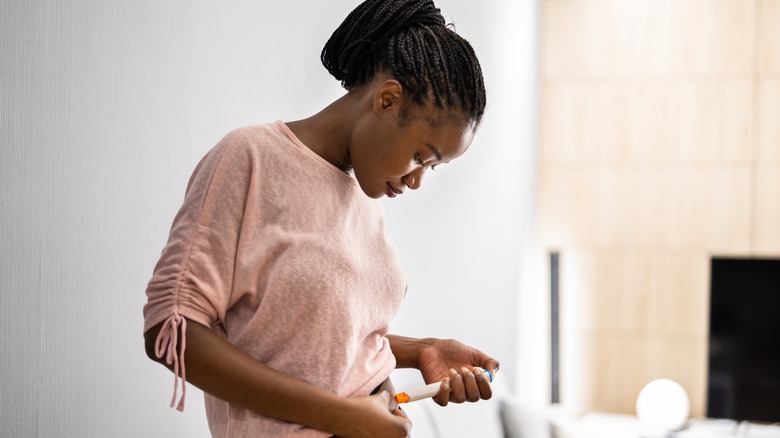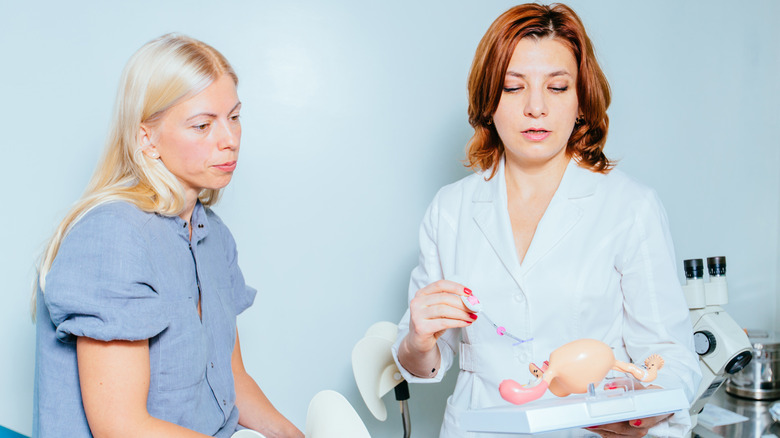Here's How You Might Feel After Your IVF Treatment
In vitro fertilization (also known as IVF) is the process of using sperm to fertilize an egg outside of the body (via Cleveland Clinic). This is a kind of ART, which stands for assisted reproductive technology, meaning that IVF is a way to manually help someone get pregnant with the help of medicine. Whether you're struggling with fertility, you're eager to have a baby with your same sex partner, or you're a single person who's ready to conceive, many people opt for IVF when they want to add a new member to their family. According to Penn Medicine, between 1987 and 2015, one million babies were born as a result of IVF or another form of ART.
Despite how many people turn to IVF when they're ready to conceive, most people don't know a lot about how IVF works. As a result, folks who are considering undergoing IVF may have concerns about the process that have less to do with numbers and success rates and more to do with how it will make them feel. Folks who are wondering how IVF might affect their mental health or the physical toll it may take on them are not alone. So, what does undergoing IVF feel like, and what side effects should you expect to experience?
Egg retrieval and embryo transfer
If you are considering embarking on IVF, there are a few procedures you will undergo during the process. IVF takes an average of four to six weeks (via Cleveland Clinic). Before you begin, you'll likely start taking estrogen or birth control pills. You'll then start the process of injecting hormones to ensure that you have many eggs this cycle instead of just one. All of this is in preparation for the egg retrieval.
During the egg retrieval procedure, you will be medicated and sedated to ensure that you don't feel any discomfort while the egg is being retrieved (via Kofinas Fertility Group). You may feel only mild pain afterward, including vaginal soreness and cramps that feel like menstrual cramps.
Once the eggs are retrieved, the next steps are fertilizing the egg and allowing the embryo to develop. Once the embryo is ready, it's time for your embryo transfer. This process is fairly painless and should feel like a pap smear (via Mayo Clinic). The most you're likely to feel is minor cramping. After the procedure, you may experience spotting, breast tenderness, and bloating.
Common IVF symptoms
Besides the procedures you'll undergo during the IVF process, there are physical symptoms you may experience as a result of your ovulation stimulation — aka side effects of the injections (via Cleveland Clinic). You may notice nausea and stomach aches during the process, and other folks experience headaches or hot flashes. Bruising and pain at the injection site is also common, and others experience itching or skin redness (via American Society for Reproductive Medicine).
Depending on the fertility medicine that you're using and how your body reacts to it, you may also notice mood swings and fatigue as a result of the injections. There are, of course, risks that come along with any medical procedure, and most medications have possible side effects as well. That said, it's very rare to encounter serious complications from the procedures or medications that come along with IVF. While any procedure can be intimidating and IVF certainly has its fair share of side effects, being prepared and knowing what to expect can work wonders in making your IVF journey easier.


